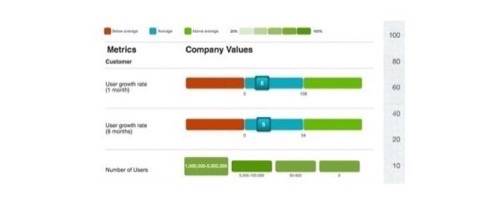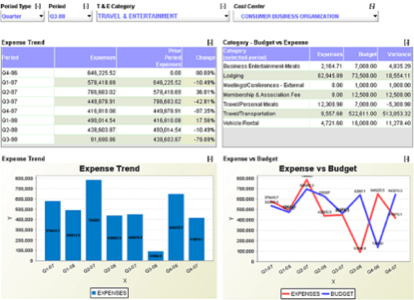
By necessity, running a startup is like flying by the seat of your pants. Because the company is new, founders often have to make up things as they go along – with little opportunity to check and see how they’re doing. That’s starting to change, though, as new startup benchmarking services promise insight on how well your startup stacks up against peers and competitors. But are these benchmarks relevant to all tech startups, and do they really help new companies succeed?

We’re about to find out. According The Wall Street Journal, several new companies are providing benchmarking measurements, based on various algorithms, for startups. The Journal claimed that thousands of startup entrepreneurs have turned to companies such as Startup Compass, G-Score, and BOSI, to “assess their young companies, based on an analysis of comparable data from their peers.” (In May, ReadWriteWeb’s Tim Devaney and Tom Stein wrote about Startup Compass in Stop Flying Blind: Use Big Data To Benchmark Your Startup.)

Several entrepreneurs told The Journal they thought the services were helpful by pointing out potential danger spots. But the Journal also quoted Patricia Greene, a professor of entrepreneurship at Babson College(which often ranks as the nation’s top entrepreneurial college) warning that benchmarking could actually discourage companies from using innovative business models. “You could go into analysis paralysis,” she explained.
Good Points, Bad Points Of Startup Benchmarking
Gail Goodman, the Chairman, president and CEO of Constant Contactsees both advantages and disadvantages to benchmarking your startup. “Tools and models are helpful because they can force you to step back, especially when it’s easy to get lost in the weeds of the day to day [operations. But] no two companies are the same,” she warns, “and benchmarking is no substitute for building a great mentor team to advise you.” The number one thing startups need to do, Goodman says, is “to build a team, and not necessarily a paid one.” Goodman believes startups particularly need people they can count on, whether it’s an informal board of advisors, peers, a formal board or a mentor.
Don’t Benchmark In A Vacuum
Ken Yancey, the CEO of SCORE, a nonprofit organization that provides mentors and counseling to startups and business owners, believes business algorithms can “potentially be a good tool, but shouldn’t be used in a vacuum. You need other metrics about what drives your business to make smart decisions.” Yancey adds that it’s always a good idea to seek as much data as possible: “Entrepreneurs who seek knowledge will always outperform those that don’t.”

But sometimes all that knowledge can be overwhelming – there’s just so much data to keep track of. One tool that might help early-stage entrepreneurs stay on top of all this information is this startup dashboard from InfoCaptor. It’s simple, and best of all it’s free.
Don’t Be A Slave To The Benchmarks
Are there dangers in benchmarking? Yancey and Goodman both warn that startups shouldn’t be a “slave to benchmarking.” Information is useful, but success is about taking action. Business consultant Brian Moran, CEO of Brian Moran & Associates, says that while it makes sense to incorporate the “critical data” a benchmarking service can provide into your strategic plan, “there is a time for planning and a time for execution.” Too many startups fail,” Moran says, “because they constantly look at their plan, but don’t execute it.”
Everyone agrees you can’t factor “gut reactions” out of the process. “Benchmarking,” says Yancey, “can take the guess work out, but it can’t take away the ‘gut work.’ By itself benchmarking is not as valuable as your knowledge and your gut feelings. But if the benchmarking doesn’t support your gut, you need to ask more questions, and possibly amend your startup plans.”
Anti-Entrepreneurial?
To me, though, relying on algorithms is almost anti-entrepreneurial. Babson’s Greene warned that “Abnormality might be [a startup’s] competitive advantage.” But a benchmarking tool might not see it that way.
Goodman agrees. “Constant Contact overinvests in customer care. But it’s my differentiator. Of course I’m not going to match the benchmarks, but I do it on purpose.”
The decision of how much to rely on benchmarks and algorithms is obviously up to every startup. Yancey says benchmarking can be “immensely valuable for fast-growth” startups, looking to avoid big mistakes as they scale up. On the other hand, some entrepreneurs succeed precisely because they follow the path less traveled.

















